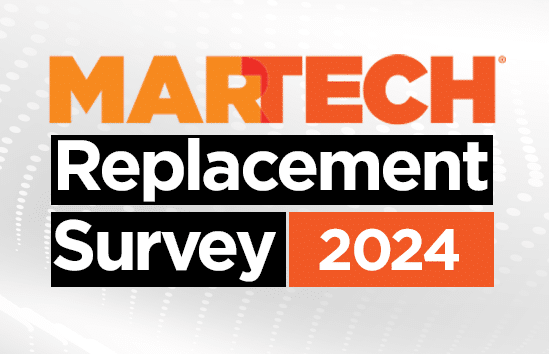The generative AI arms race may be over before most people know it’s begun.
Take the case of genAI as an assistant, helping users find their way around their dashboards, their messaging apps, their datasets, summarizing documents and chats and answering questions posed in natural language.
Everybody’s doing it
This week at PegaWorld I heard a lot about Pega’s Knowledge Buddy, an assistant trained on an organization’s own data and also plugged into an LLM, in this case OpenAI on Azure. CTO Don Schuerman’s take on Pega’s own solution was admirably clear-headed: “I think Knowledge Buddy is well-designed and solves a lot of enterprise problems [but] I am not under the illusion that it’s the only RAG-based product that’s going to be sold. Everybody’s got one.”
Everybody’s got one. Pretty much true. Adobe has its AI Assistant. Salesforce has its Einstein Copilot. Microsoft has its own copilot, HubSpot has various AI assistants, Oracle boasts a Digital Assistant, SAP has a copilot called Joule. The list goes on and on. One quickly concludes that it’s important to have an AI assistant, not because it’s a differentiator, but because all the competition has one.
Words and pictures
Or take the case of the genAI tools that have sparked huge public interest — text and image generators. The reason there is huge public interest is precisely that they’re widely, publicly available. This accessibility fosters a unique interplay between words and pictures, where anyone can become a creator and blur the lines between the writer and the artist. No, I didn’t write that rather dull italicized sentence. I just tabbed over to Google Gemini and asked it to write the next sentence in the article.
I wonder how many of the 14,000-plus martech products out there don’t have some form of genAI. Heck, we have it here. We have MarTechBot, trained on our own archive, answering questions about marketing technology. There’s an image generator too.
Text and image generation is rapidly improving but it’s important to remember that however magical the output is, there’s nothing magical about offering the capabilities. Before you know it, it will be odd not to have the capabilities. A bit like a supermarket not selling eggs.
But wait, there’s more
So the AI arms race is over? We’re going to get better iterations of these tools, but essentially they will be everywhere. They’re table stakes.
No, I didn’t say the AI arms race. I said the generative AI arms race. It’s easy for people who don’t spend all day thinking about AI to tacitly assume that generative AI is all there is to it. But that’s not remotely the case. There are countless applications of AI out there in the wild that are not generative AI. AI-powered predictive analytics, for example, or classification AI of the kind that is used to automate tagging in digital asset management systems.
Non-generative AI is, broadly speaking, statistical. It ingests and analyzes data at scale and creates an output based precisely on that data. It doesn’t generate new information; it tells you, if I can put it this way, what the information would tell you if you had the capacity to sit down and analyze it yourself.
This kind of AI is important. It can make product or content recommendations. It can also recommend next-best-actions to steer a customer through a complex journey. Does that sound familiar? If you’ve been following my dispatches from PegaWorld this week, it should: “Pega is also, and perhaps primarily, a decisioning and workflow automation platform, driven by AI but not genAI.”
Real-time decisioning
The easiest way to understand real-time decisioning at Pega is to recall that it started out as a business process management offering. It treated business process and workflow challenges as “cases,” and used AI to recommend next-best-actions to address those challenges — specific, individual challenges.
Somewhere along the way, it became evident to Pega’s founder and CEO Alan Trefler that this approach could be applied to CRM. In other words, AI could be used to predict — based on statistical analysis — which offer, message, or other form of engagement would perform best for a customer at any stage on their journey — yes, specific individual customers.
For some years, this seemed to be on a different planet from the approach taken to CRM by Salesforce, or indeed by Adobe or Oracle or any of the other big players. Pega seemed to be playing in its own space, with low name recognition, but success in attracting large enterprise customers (its target audience, alongside some governments and U.S. federal bureaus).
Indeed, Pega seemed to regard the efforts of Salesforce et al., with their alleged batch processing and vague audience segments, with something approaching disdain. “Incessant mediocrity,” Trefler told me back in 2018. He also told me: “They’d love to buy us. We’re giving them a lot of aggravation. But we’re not for sale. We’re pretty vocally independent as a firm.”
How strange then to hear Salesforce at this year’s Connections talking (in these very words) about decisioning and next-best-actions in Einstein Personalization. It sounded like a replay of a 2018 Pega keynote. Does it make Trefler’s head explode to see other vendors apparently jumping on the bandwagon?
In fact, he’s not really buying it. “It’s not an easy bandwagon to land on,” he told me. “It’s moving.” While he welcomes validation, he still perceives two “diametrically opposed approaches.” There’s Pega’s approach, described above, and then there’s “Database marketing, SQL queries, lists of audiences, product-push…It’s deeply ingrained.”
Dig deeper: Salesforce piles on the Einstein Copilots
Placing my bet
Okay, bookmark this so you can come back in two years and tell me I was wrong. I have repeatedly heard in recent months that, although the future is AI, we don’t know what it will look like. My bet is that generative AI will not rule that future. In very short measure, it will be as familiar, as everyday as email, online booking (remember going to the travel agent?) and Amazon book recommendations (those are driven by statistical AI, by the way).
If AI is to be a true game changer for enterprises it will be through some other application of AI. Maybe refinements in predictive AI, maybe truly autonomous AI that can make unsupervised business decisions without catastrophic risk to the business. We don’t know yet. What I do think I know is that text and image generation, once everyone is doing it (which won’t be long), will seem less of a game changer than it does today.
Email:
See terms.
The post AI is a game changer, but not generative AI appeared first on MarTech.





